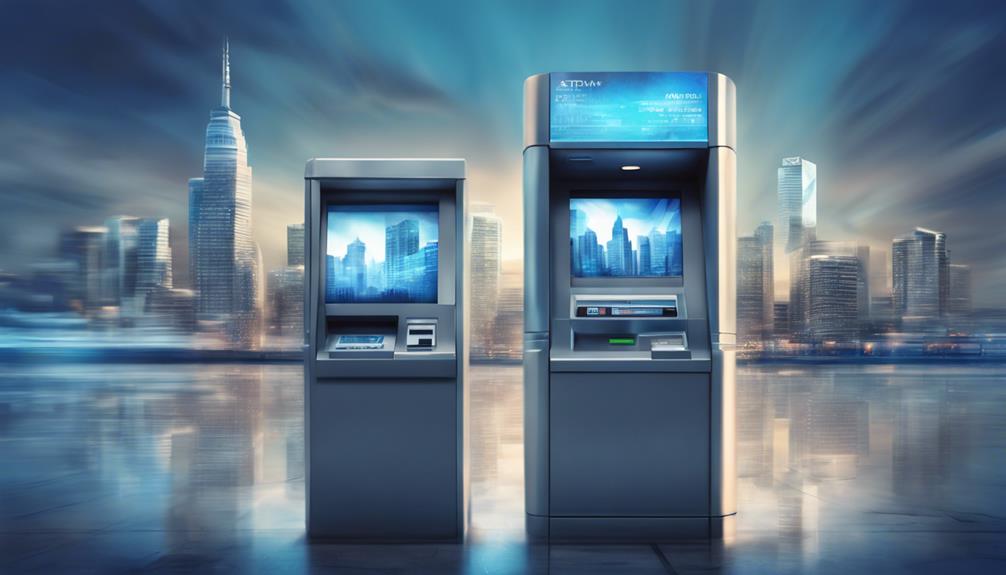What Is Cryptocurrency Coin

You've likely heard of Bitcoin and Ethereum, but the realm of cryptocurrency extends far beyond these giants.
Each cryptocurrency coin, from the widely recognized to the niche, is more than just a form of money; it's part of an intricate digital ecosystem.
Most operate on blockchain technology, a system that ensures security and transparency by distributing data across a network of computers.
But what sets one coin apart from another, and why does it matter for your digital wallet?
While the allure of investment potential is strong, navigating the complexities of these digital assets can be daunting without a solid grasp of their foundations.
Why should you care about the underlying technology, and what impact could this understanding have on your financial decisions?
Let's explore.
Cryptocurrency Basics

Cryptocurrency is a digital currency that uses cryptography to secure transactions and control the creation of new units.
As you discover more about this fascinating world, you'll find yourself part of an inclusive community that values transparency and innovation.
Cryptocurrency operates on blockchain technology, a decentralized ledger that records all transactions across a network of computers.
This means no single entity, like a financial institution, has control over the history of transactions, fostering a spirit of decentralized finance.
Bitcoin, the first and most well-known digital asset, paved the way for thousands of other virtual currencies.
Each cryptocurrency serves different purposes and operates on its own unique blockchain or another type of digital framework.
When you engage in the cryptocurrency market, you're not just exchanging digital currencies; you're part of a movement that challenges traditional financial systems and offers an alternative rooted in autonomy and peer-to-peer interactions.
Cryptocurrency exchanges provide platforms where you can engage with this market, trading various cryptocurrencies and becoming part of a global network of users and developers.
As you delve deeper, you'll find that embracing cryptocurrency is about joining a community that's eager to innovate and redefine financial interactions on a global scale.
Acquiring Cryptocurrencies
You can start acquiring cryptocurrencies by setting up an account on a reputable exchange platform.
Such platforms include Crypto.com and Bitcoin.com, where you can choose and trade popular cryptocurrencies.
Like Bitcoin and others, these have been catalysts in redefining financial assets globally.
Utilizing Digital Wallets

After acquiring cryptocurrencies, it's important to understand how to securely manage and store them using digital wallets. Whether you're holding Bitcoin, Ethereum, or any other digital coin, using the right wallet plays a crucial role in your journey.
As part of the crypto community, you'll find that choosing between hot wallets or cold wallets is more than just a technical decision; it's about safeguarding your piece of this collective digital future.
Hot wallets, which are software-based and remain connected to the internet, offer you convenient access from your computer or mobile device. They're ideal if you're actively trading or spending your cryptocurrencies. Remember, though, they rely on trustworthy service providers to ensure security.
On the other hand, cold wallets are like your personal cryptic vaults. These hardware devices store your private keys offline, making them immune to online threats and hacks. They might be less convenient for quick transactions, but for long-term holdings, they offer unmatched security.
Embracing this method connects you with the cautious stewards of the crypto world, who prioritize absolute security in their digital interactions.
In both cases, aligning with a reliable wallet service underscores your commitment to not only protecting your individual assets but also supporting the integrity and future of the community's collective digital wealth.
Risks and Security
While cryptocurrencies offer advanced security features, they're not completely immune to risks and can be targeted by sophisticated hacks. You might feel reassured knowing that your crypto transactions entail two-factor authentication, enhancing your security. However, remember that these mechanisms, robust as they are, aren't un-hackable. In fact, several major financial losses were due to breaches in these very advanced systems.
Cryptocurrency exchanges, for instance, have been known to fall victim to breaches, such as the hack on crypto.com that resulted in the loss of over $30 million in Ethereum and Bitcoin. Similarly, other exchanges have been hacked, including Coincheck, which suffered losses of more than $550 million worth of crypto, and Bithub, which lost about $30 million.
As you navigate the volatile seas of crypto trading, it's essential to recognize that the value of cryptocurrencies swings wildly based on supply and demand. This volatility is fueled by a market that lacks the regulatory protection usually found with traditional financial products. Such an environment requires a higher degree of diligence and caution from your side.
Moreover, if you often manage your crypto investments on mobile devices, be aware of the heightened risks of malware and phishing attacks that lurk there, ready to compromise your security. Losing access to your cryptocurrency wallet isn't just frustrating – it means losing your entire investment.
With the blockchain technology underpinning it all, maintaining its security and integrity is critical for protecting not only your investment but your identity as well.
Investment Strategies

Diving into cryptocurrency investment requires a strategic approach to navigate its volatile nature effectively. You're not just buying digital coins; you're joining a community of forward-thinkers and innovators.
Understanding the market is crucial—know the coins like Bitcoin, Ethereum, and Litecoin, understand their uses, and gauge their growth potentials.
You might consider starting with a diversified portfolio. This isn't just playing it safe; it's about making smart, calculated choices. By investing small amounts in a variety of cryptocurrencies, you position yourself to benefit from multiple sources of growth. Think of it as not putting all your eggs in one basket.
Alternatively, you could invest in a cryptocurrency index fund. This strategy lets you track a market index, giving you a broader market exposure. It's like having an insider's view without needing to guess which individual coin will perform best.
Then there's the dollar-cost averaging strategy. By investing fixed amounts regularly, you'll lessen the sting of fluctuations. It's about steady growth over time, echoing the patience and persistence of building lasting relationships within the community.
Lastly, consider cryptocurrency ETFs. They offer a more traditional route in this innovative space, allowing you to invest without holding the assets directly. This method introduces a comforting familiarity to your investment journey in the crypto world.
Frequently Asked Questions
What Is Crypto Coin Used For?
Crypto coins are used for trading and investing, particularly in decentralized finance (DeFi) applications, where users can lend and stake their coins for interest. They also facilitate the purchase of goods and services. Additionally, they have become part of a community that values innovation and financial independence. You can also use them to send money worldwide through decentralized networks such as blockchain technology, allowing for peer-to-peer transactions without central authority oversight.
Is Crypto Coin Real Money?
You're probably wondering: is crypto coin real money? It's not traditional cash, but you can use it to buy goods and services, such as software, digital real estate, and more from online marketplaces like certain games or online communities that accept cryptocurrencies like Bitcoin and Ethereum. These digital currencies function like money within specific online ecosystems and marketplaces, often providing a high level of security through cryptographic systems and decentralized blockchain technology.
What Is Crypto Money and How Does It Work?
Crypto money is digital currency you use just like traditional money, but it is decentralized and secured by cryptography. it operates on blockchain technology, ensuring safe, peer-to-peer transactions without needing a central authority.
Is Cryptocurrency a Good Investment?
You're considering if investing in cryptocurrency, such as Bitcoin or Ether, is wise. Its volatility means high risk but also high potential rewards. Research thoroughly and understand your risk tolerance before jumping in with your hard-earned money.
Conclusion
You've now explored the essentials of cryptocurrency coins, such as Bitcoin, Litecoin, and Ethereum, from understanding the basics to acquiring and securing your digital assets.
Remember, employing smart investment strategies is crucial.
Maintaining your digital wallets diligently is also important.
As you delve into the dynamic world of crypto, keep in mind the inherent risks.
Staying informed is essential in this space.
Embrace the journey of navigating this cutting-edge financial landscape, where innovation and vigilance go hand in hand.





